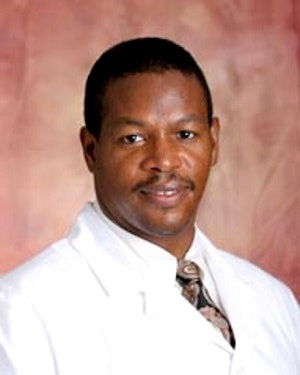As the coronavirus rages around the world, scientists are in a race to develop a vaccine to prevent COVID-19, the infectious respiratory disease caused by the virus, and a drug to treat patients already infected with the virus.
Researchers are working overtime, even as the number of coronavirus cases has crossed 1.2 million and deaths due to it have crossed 65,000 as of April 5, according to Johns Hopkins University.
But even if a vaccine were available today, “it would take at least 12-18 months to put it into the arm of a person who needs to be protected from COVID-19,” says Dr. Donald Alcendor, an infectious disease specialist doing research in molecular biology, neuroscience and virology at Meharry Medical College in Nashville, Tennessee.
The road from lab creation, to clinical trials, to U.S. Food and Drug Administration approval, and ultimately, patient use, is long, expensive, and at times, bumpy. With a patent pending for Meharry’s work on a drug reagent that could someday treat the Zika virus, Alcendor, its principal investigator, is no stranger to the ebb and flow of the research journey.
 Dr. Donald Alcendor. (Photo: Meharry Medical College)
Dr. Donald Alcendor. (Photo: Meharry Medical College)With the nation’s oldest and largest historically Black academic health science center shuttered because of COVID-19, Alcendor’s usual bustling lab is now quiet and empty. But he is still at work.
On a normal day, Alcendor would be huddled with his research team, likely churning out manuscripts for journal publication, or exploring cells called pericytes and their role in preventing neurodegenerative diseases, including Alzheimer’s. But since late March, just a few weeks into what became a pandemic, that work has all but stopped.
Realizing the severity of the virus outbreak, Dr. James Hildreth, Meharry’s president, told Alcendor to shift his research focus to the coronavirus. The priority now is to develop an antiviral drug for SARS-CoV-2, the specific coronavirus strain that causes COVID-19. It’s a novel virus that infectious disease experts like Hildreth didn’t know existed until January.
Looking into Meharry’s research arsenal, Hildreth says he immediately thought about “the drug candidate [Alcendor] had developed for Zika,” and whether a similar drug, specifically for COVID-19, could be developed.
In 2016, at the height of the global Zika outbreak, Alcendor, along with Meharry’s Drs. Waldemar Popik and Atanu K. Khatua, found a way to prevent replication of the genetic material from the Zika virus once it entered human cells. The team was able to reduce virus replication by 95% using their drug candidate. The coronavirus has a similar genetic disposition to the Zika virus, says Hildreth. That makes him hopeful that the same technique used to disrupt Zika replication can be used in a drug to disrupt the replication of the coronavirus.
To date, there is no antiviral drug proven to be effective against COVID-19, says Alcendor. But manufacturing one, he suggests, will likely take less time than producing a vaccine — and could potentially save patients with no other lifeline.
Because handling COVID-19 is limited to high-level containment laboratories, Alcendor will use the OC43 virus in his research. It is one of six common viruses in the coronavirus family. This strain, or type, he says, may cause a cold, or other mild symptoms in humans, but it will not unleash a contagion.
With his work on a drug to treat COVID-19, Alcendor is entering a crowded field filled with drug companies and university scientists, some of them his colleagues in the south, at Vanderbilt University and the University of North Carolina, Chapel Hill.
While the aim of companies and his peers is to identify an antiviral drug or an effective vaccine for COVID-19, Alcendor says his research will take a different approach.
Finding an effective antiviral strategy not only for COVID-19, “but for current viruses within that family and future viruses within that family, is the ultimate strategy,” says Alcendor.
A major part of his research effort will be devising a reagent or compound to see if the mice he infects with the OC43 coronavirus will be protected and survive.
“That will be the test,” says Alcendor. “This part of the research will tell us if what we have done here at Meharry with a mouse model will allow us to go to the next phase. That means looking at the effectiveness of our reagent for OC43 and how it will perform against the virus now causing the pandemic.”





















